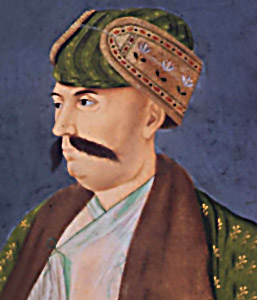 Rohillas are Muslim highlander tribes (Roh stands for mountains and Rohilla literally means mountaineer) originating from Pashtun. Roh represented the mountainous expanse, stretching from Swat and Bajaur in north to Sibi and Bhakkar in south and Hasan Abdal in east, to Kabul and Kandahar in west. The Rohillas at one time, used to reside in British India. However, due to diverse circumstances some were forced to settle in Burma and South America. The vast majority re-settled later in Pakistan during the time of Independence. Although, a vast population stayed back after partition of India in 1947, rendering the place to be named as Rohilkhand. It presently falls in the state of Uttar Pradesh.
Rohillas are Muslim highlander tribes (Roh stands for mountains and Rohilla literally means mountaineer) originating from Pashtun. Roh represented the mountainous expanse, stretching from Swat and Bajaur in north to Sibi and Bhakkar in south and Hasan Abdal in east, to Kabul and Kandahar in west. The Rohillas at one time, used to reside in British India. However, due to diverse circumstances some were forced to settle in Burma and South America. The vast majority re-settled later in Pakistan during the time of Independence. Although, a vast population stayed back after partition of India in 1947, rendering the place to be named as Rohilkhand. It presently falls in the state of Uttar Pradesh.
The Rohilla War of 1772-1774 was a penalising crusade by Shuja-ud-Daula, Nawab of Oudh, against the Rohillas, the highlanders settled in Rohilkhand, northern India. The Nawab was supported by troops of the British East India Company, in a triumphant campaign brought about by the Rohillas going back on a debt to the Nawab.
The Rohillas were beaten back towards the mountains by the Marathas a few years earlier. As a result, they had petitioned for aid to Shuja-ud-Daula, an ally during that time of the British. He promised to help them in return for a sum of money. But when the Marathas were driven off, the Rohilla chiefs denied any pay. The Nawab then decided to annex their country and appealed to Warren Hastings for assistance.
On 3rd February 1772, Warren Hastings, the then Governor-General of India, authorised General Sir Robert Barker (c. 1729-1777) to intervene in the conflict between the Marathas and the Rohillas at the instance of the Subahdar of Oudh. The Subahdar desired an alliance, which the Company supported by sending an agent to the Rohillas to aid in the negotiations. On April 17th, they resulted in a treaty, whose terms included a Rohilla payment of forty lakhs to the Vizir of Oudh, if he expelled the Marathas from the territory of the Rohillas. Hastings justified his action on the ground that the Rohillas were a danger to the British as uncovering the flank of Oudh.
In August 1773, Hastings held a meet with Shuja-ud-Daula, the Nawab of Oudh. He acquired the Nawab`s agreement to pay rupees 50 lakhs for control of Allahabad and Kora. In other arrangements, Nathaniel Middleton (1750-1807) was named as Hastings` personal representative to the Nawab. Hastings agreed to accept rupees 40 lakhs and expenses for the loan of a brigade of Company troops to the Nawab in the event of a conflict with the Rohillas.
In January 1774, Hastings ordered a brigade of the Company`s army, under the command of Colonel Alexander Champion (d.1793) to proceed towards Oudh. Joined by forces from Oudh on April 17, the brigade invaded the Rohilla territory. The combined force defeated the Rohillas on April 23rd at Miran Katra. The death of Hafez Ruhmet, Rohilla leader, proved the war`s turning point. Later in July 1774, the British and the Vizir of Oudh marched to Fyzoolla Khan. For a jagir of Rs.75,000, the English bought out the segment of Rohilkhand he possessed. A treaty of October 7th brought the hostilities to a closing.






































